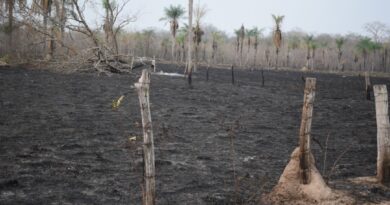Poilievre argued the cap would “prevent our industry from growing, and even force it to shrink in size, because the policy is to reduce the output of the industry.”
The federal government
has
said the cap and trade policy will lower pollution levels and help fight climate change, while also encouraging clean innovation and the adoption of technologies like carbon capture, utilization, and storage.
The
Parliamentary Budget Office has said the cap could lead to the loss of 54,400 jobs and 0.39 percent being shaved off Canada’s GDP by 2032.
The Tory leader also reiterated that he would get rid of the carbon tax entirely, including the federal legislation that requires provinces to impose an industrial carbon tax. While Prime Minister Mark Carney signed
a directive
cutting the carbon tax rate to zero shortly after assuming office on March 14, he has pledged to replace it with a system that rewards Canadians for making greener choices, while making “big polluters pay” for the incentives.
Poilievre also said his government would also establish a
Canadian Indigenous Opportunities Corporation to offer loan guarantees for First Nations communities. Poilievre said this indigenous-led corporation would
ensure that the communities benefit from the development of natural resources projects, with the money being invested in schools, hospitals and drinking water infrastructure.
Impact Assessment Act
Poilievre also pledged to get rid of the Impact Assessment Act, previously known as Bill C-69, which gave Ottawa the power to evaluate major infrastructure projects like pipeline projects and new mines. The Tory leader said
the legislation
, which was dubbed the “no more pipelines act” bill by former Alberta Premier Jason Kenney, has made it “
impossible to build the pipelines and energy infrastructure Canada needs.”
The Supreme Court of Canada in October 2023
ruled that the act was “largely unconstitutional,” prompting the federal government to amend the legislation. The Alberta government has said the amendments did not go…
Poilievre also said he would scrap Bill C-48, which prevents ships holding 12,500 metric tons of oil from operating in the waters off the north of B.C.’s coast, which he said would allow the country to “build new pipelines and LNG terminals to export our energy overseas, ending our economic dependence on the United States.”
The Conservative leader called on Carney to support the energy CEO’s five requests.
During a press conference held later the same day in Winnipeg, Carney was asked if he planned to repeal the Impact Assessment Act.
Carney said his government does “not plan to repeal” it but would work to “remove duplication” on environmental assessments and other approvals for projects of national interest.
“We will follow, as the federal government, the principle of ‘one project, one approval’ to move forward,” he said.
“What’s essential is to work at this time of crisis, to come together as a nation—all levels of government —to focus on those projects that are going to make material differences to our country.”
Carney has vowed to use both “clean and conventional energy,” and following a meeting with Canada’s premiers on March 21 he pledged to develop a national trade and economic corridor through a “First Mile Fund” to build transportation networks connecting energy extraction sites to rail lines and roads.



